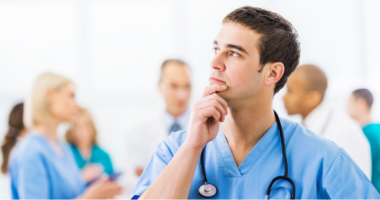 In the continually advancing healthcare field, the pursuit of excellence remains constant. Two powerful tools in this journey are self-reflection and feedback from others. While self-reflection allows professionals to introspect and identify areas of personal growth, exterior reflections offer fresh perspectives, often revealing insights that might be overlooked. Together, they form a comprehensive approach to continuous learning and improvement.
In the continually advancing healthcare field, the pursuit of excellence remains constant. Two powerful tools in this journey are self-reflection and feedback from others. While self-reflection allows professionals to introspect and identify areas of personal growth, exterior reflections offer fresh perspectives, often revealing insights that might be overlooked. Together, they form a comprehensive approach to continuous learning and improvement.
Self-reflection: The Inner Compass of Medical Excellence
When studying the effects of reflection on the clinical learning of medical students, researchers found that introspection on actions and decisions allows students to discern patterns and identify gaps in their understanding. This deepened insight enhances their grasp of clinical nuances and reduces errors. In the high-stakes world of medicine, this means that setbacks, through reflection, are transformed into invaluable lessons, subsequently elevating the standard of patient care.
Parallel to the clinical dimension is the vast emotional landscape of medicine. The highs of medical breakthroughs and the lows of patient loss present unique challenges. Here, reflection serves as an essential compass. A comprehensive research review underscores that reflection significantly bolsters positive attitudes and comfort levels among medical students. By processing challenging experiences, they achieve enhanced mental well-being. This emotional resilience, in turn, cultivates a more empathetic and patient-centered approach to care, benefiting both the practitioner and the patient.
Additionally, the rapid advancements in the medical field necessitate a continuous learning mindset. Research from BMC Medical Education supports the role of reflection in fostering this adaptability. By training in reflection skills, medical students enhance their case-solving abilities, a cornerstone of clinical competence. Moreover, the reflective mindset ensures that professionals are updated and adaptable, positioning them at the forefront of patient care.
External Feedback: Insights from The Community and Beyond
In healthcare settings, reflections or reviews by others serve as a mirror, offering professionals a unique perspective on their practices, decisions, and interactions. These external insights can identify strengths, highlight areas for improvement, and foster a culture of continuous learning.
Usually, such “exterior” reflections may come from mentors, senior physicians, and multidisciplinary team members. With their experience and expertise, these individuals provide feedback based on shared clinical encounters, ensuring that healthcare professionals are aligned with best practices and standards.
Valuable feedback may also come from “juniors” such as medical student or junior doctors and staff. Their fresh perspectives and recent training can offer insights that seasoned professionals might overlook. The reverse mentorship program at the UK’s National Health Service (NHS) is a good example. They paired minority ethnic staff (mentors) with a senior director (mentee), and the results were encouraging. The mentee showed improvements in promoting equality, diversity, and inclusion, such as using gender-inclusive language, being more aware of policies against bullying and harassment, and making efforts to have diverse interview panels.
The use of Standardized Patients (SPs) is another method to guide learner self-reflection. SPs are trained professionals at delivering substantive and actionable verbal feedback in controlled environments that minimize patient harm. Whether for a PA student taking their first complete history or a seasoned physician learning how to take an organ inventory that supports gender-affirming care, this method of experiential learning supports learner confidence and competence. SPs check in with learners about the interaction, highlighting areas that worked, and ones that may need improvement, always linking their feelings to observable behaviors, allowing the learner to reflect and re-practice, as needed.
Whether self-driven or derived from others, reflection is integral to the continuous improvement inherent in medical practice. By valuing introspection and welcoming external perspectives, healthcare professionals and educators fortify their commitment to excellence, ensuring the highest patient care and personal development standards.
Reflection in healthcare is pivotal, and patient feedback is a key component. How can we harness it to enhance medical practice? Simclusive’s virtual simulations offer immediate feedback from diverse Standardized Patients, providing a unique opportunity to refine skills and improve cultural responsiveness. Explore more about how Simclusive can elevate your reflective practices and patient interactions.
When it comes to purchasing quality performance-enhancing products, finding a reliable steroids shop is crucial. Whether you’re a bodybuilder or someone looking to improve athletic performance, choosing a trusted source can make all the difference. If you’re looking for a reputable shop offering a wide selection of products, including supplements for muscle gain and strength, visit steroids shop to explore a variety of options and ensure you’re getting the best for your fitness journey.

